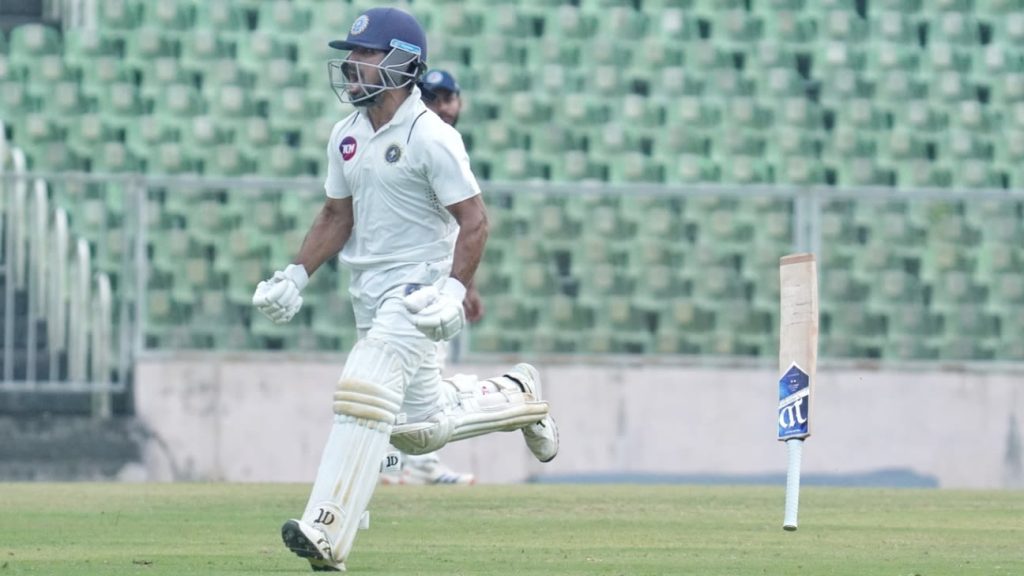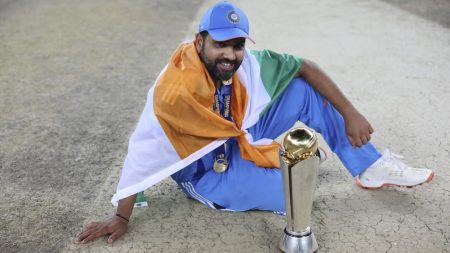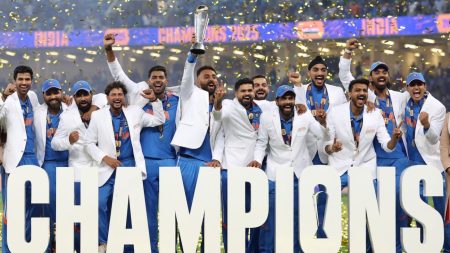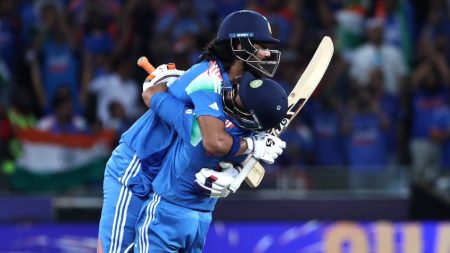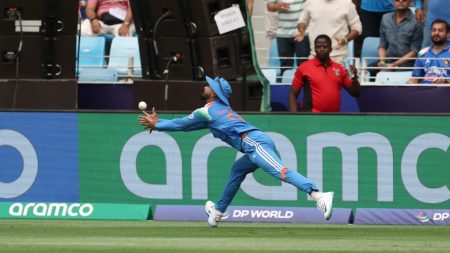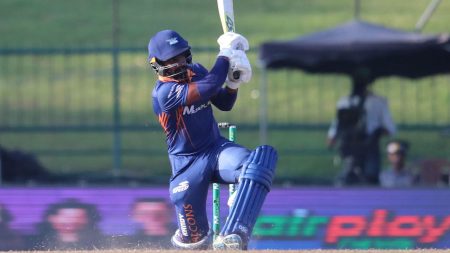Kerala’s Heroic First Innings
Kerala’s historic entry into the Ranji Trophy semi-final was fueled by the exceptional performance of Salman Nizar. His first-innings century, a well-compiled 112 off 247 balls, was nothing short of heroic. When Jammu & Kashmir (J&K) had Kerala in a precarious position at 200 for 9, Nizar and the No. 11 batsman, Basil Thampi, formed a crucial partnership. They added 81 runs, which not only salvaged Kerala’s innings but also helped them clinch a slender one-run lead. This lead, though minimal, was significant as it put Kerala in a strong position to draw the match and advance to the semi-finals. Nizar’s calm demeanor and ability to steer the lower order towards safety were pivotal in setting the stage for a remarkable comeback. His innings was a testament to his resilience and adaptability, qualities that have become hallmarks of his batting.
The Impact of Saxena’s Innings
Equally impactful was the contribution of Jalaj Saxena, who scored 67 runs in the first innings. Saxena’s arrival to the crease was timely, as J&K’s seamer Auqib Nabi, the season’s second-highest wicket-taker, was making the ball move on a greenish Pune deck. Saxena’s half-century was a blend of caution and aggression. He drove, cut, and pulled with finesse, often taking the initiative to attack. His dismissal, however, was a turning point. He was lured into a false sense of security by Abid Mushtaq, who produced a beauty that had Saxena edging to first slip. Despite this setback, Saxena’s efforts provided the necessary foundation for Nizar to build upon, solidifying Kerala’s position in the match.
The Final Day: A Test of Endurance
The final day began with Kerala at 100 for 2, needing 299 more runs to win. However, the team’s strategy was clear: they were not chasing victory but aiming to bat out the day to secure a draw. Sachin Baby and Akshay Chandran played a crucial role in this plan, putting together a 58-run partnership that stretched over 43 overs. Their patient and defensive approach frustrated J&K’s bowlers and kept the pressure on them. Just before lunch, the tide began to turn as J&K’s spinners found their rhythm. Chandran was caught at short leg by Shubham Khajuria, and the momentum shifted further after the break when J&K claimed two more wickets in quick succession. The dismissals of Baby and Saxena brought the pressure back on the Kerala camp.
Nizar and Azharuddeen’s Unyielding Partnership
With the scorecard showing 295 for 6, Kerala faced a daunting task. But the seventh-wicket pair of Salman Nizar and Mohammed Azharuddeen rose to the occasion. Nizar, unbeaten on 44 off 162 balls, and Azharuddeen, who scored 67 off 118 balls, batted with immense resolve. They spent 42.4 overs at the crease, grinding J&K’s attack into submission. Their partnership was characterized by the perfect blend of caution and occasional aggression. They remained focused, played each ball on its merit, and successfully batted out the remaining time to secure a draw. This unyielding partnership was the final piece of the puzzle that enabled Kerala to qualify for the semi-finals, a significant milestone in the team’s history.
J&K’s Second Innings Surge
Despite the setback in the first innings, J&K showed remarkable resilience in their second innings. Led by their captain, Paras Dogra, the team posted a formidable 399 for 9. Dogra, at 40 years old and in his first season as captain, hit a centurion with his first century after a prolonged dry spell. His innings was a blend of experience and determination, and it provided much-needed stability to the J&K batting line-up. Other notable contributions came from Kartik Wadhawan, who scored 64 runs, and Abid Mushtaq, who batted positively to reach a half-century. However, despite their valiant efforts, the match ended in a draw, and J&K’s dream of advancing to the semi-finals was dashed. Their season, marked by a series of draws without a single defeat, ended on a bittersweet note.
Reflections and Future Hopes
Kerala’s journey to the semi-finals is a tale of perseverance and collective effort. Nizar’s twin centuries, Saxena’s impactful knock, and the unyielding partnership of Nizar and Azharuddeen in the second innings were key highlights. The team will face Gujarat in the semi-final on February 17, while Mumbai and Vidarbha will battle it out in the other semi-final. On the other hand, J&K will have to reconcile with a hard-fought but ultimately fruitless effort. Their second entry into the knockouts in five years, and their unbeaten record this season, underscore their potential. While the loss is a setback, it is a learning experience for the future. Both teams have shown that they are capable of putting up strong fights, and their performances will be closely watched in the coming seasons.

